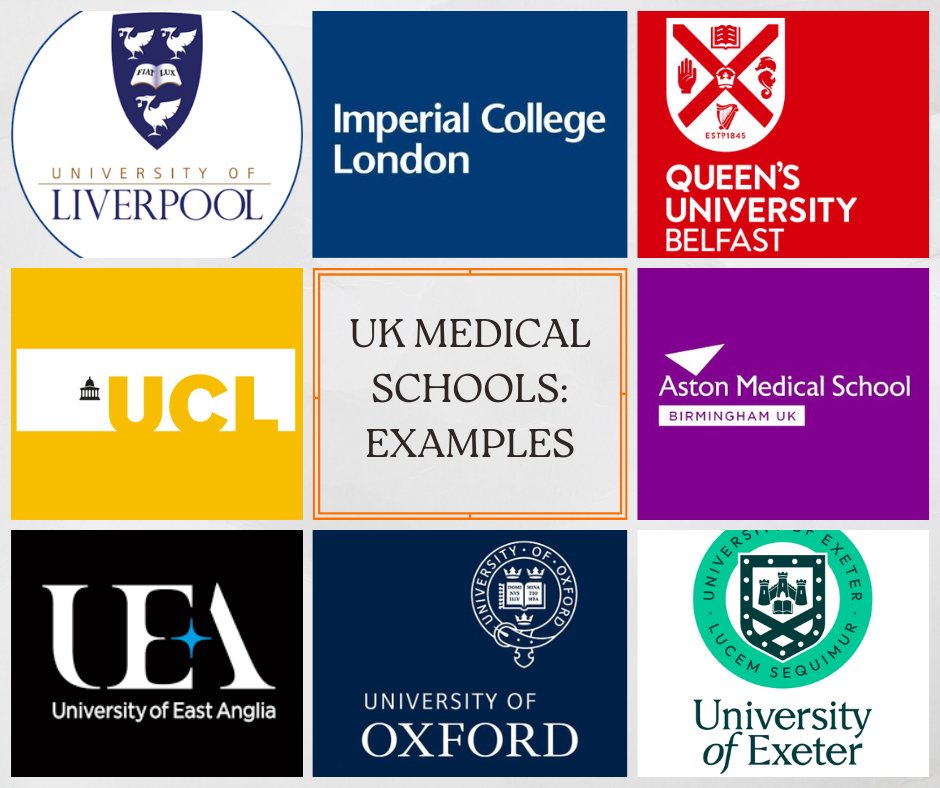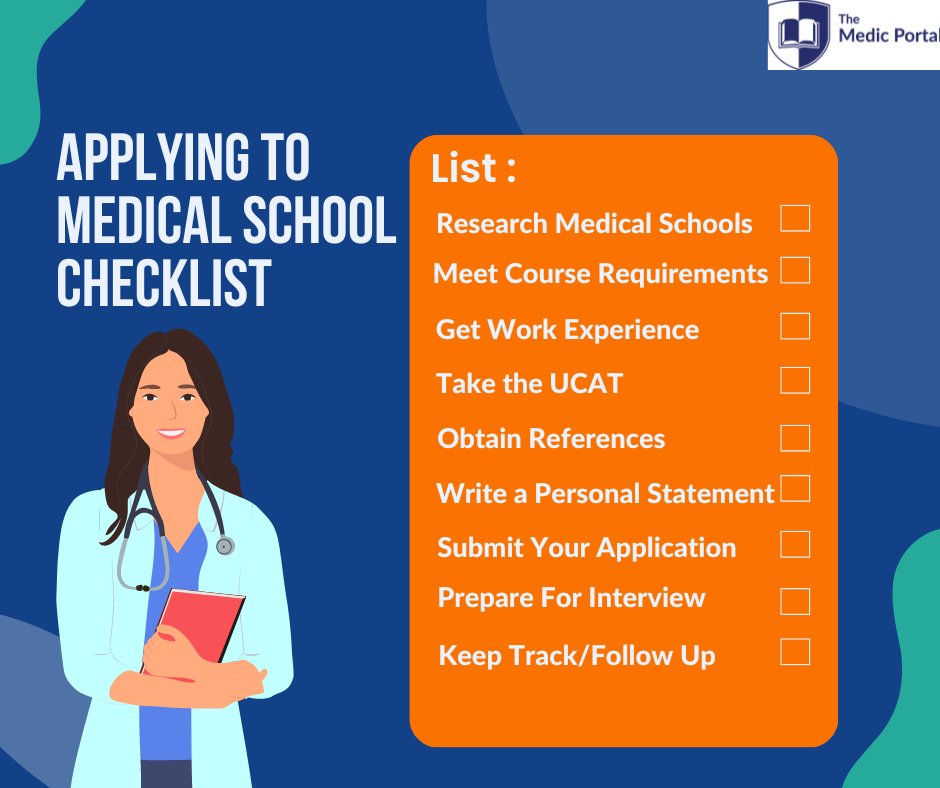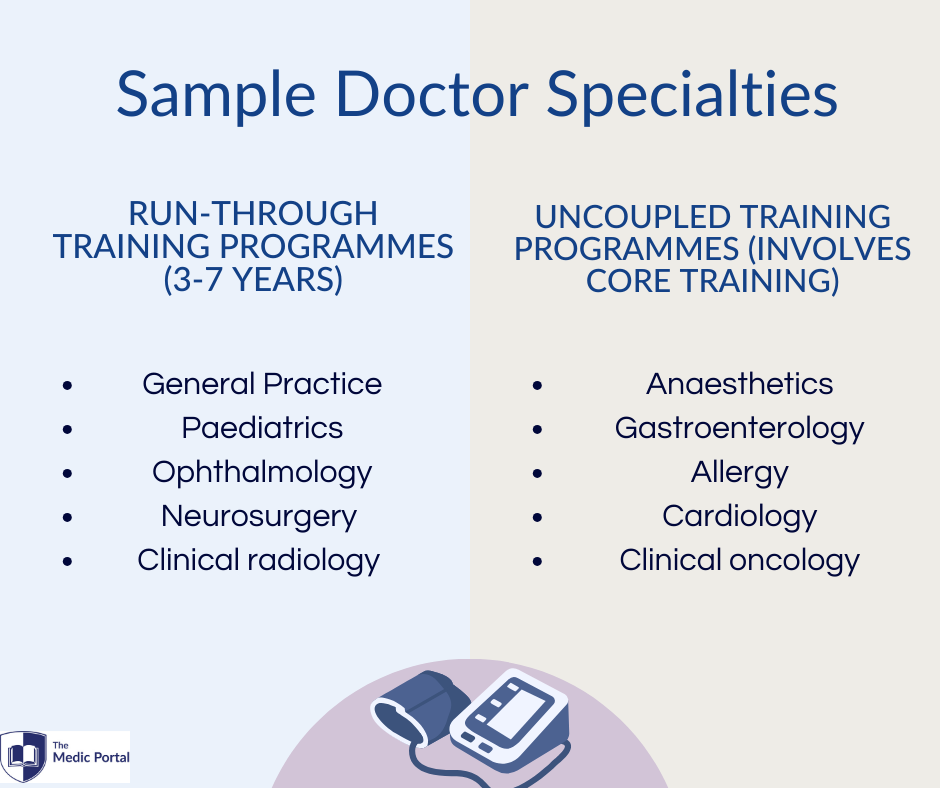How To Become A Doctor In The UK: Preparing for Medical School

Even before you get into medical school, you need to plan.
The most important first thing is deciding that you really do want to be a doctor. This page has some handy tips on how to decide: Work experience and volunteering can also help you see what the job is like – and come in handy during the selection process!
You then need to make sure you study the right subjects: check medical school websites to see their requirements or use our guide to see which A-levels are required!
You’ll also want to make sure you get involved in relevant societies at school, stay up to date with medical news, and follow up on your medical interests. The Medical Schools Council has lots of advice on how you can get involved.
Best Universities For Medicine In The UK
All UK universities are good for medicine, as they all let you graduate and become a doctor! The important thing is picking the right university for you as they all teach in different ways. We have advice on how to pick here!

If you want to look at rankings, you can, but be aware that they may not value the same things you do in a medical school. Many, however, such as The Complete University Guide, do various breakdowns, such as job prospects, student satisfaction and overall scores – so you can filter the schools based on what you value the most!
Applying to Medical School
You’ve decided to get a medical degree – congratulations! The road ahead is not easy but very rewarding.
Applying to medical school is a long process: you have to be ready before your friends are even thinking about university.
You need to register to sit entrance exams the summer before your last year of school for UK medical schools. This includes taking the UCAT (University Clinical Aptitude Test) over the summer. In 2024, the registration will open on May 14th and testing will start on July 8th, running until September 26th.
You’ll also need to write your personal statement and decide where you’re submitting your documents in time for the October 15th deadline.
You’ll then have to apply via UCAS, an online platform used by universities in the UK. You can only apply to 4 medical schools via UCAS each year.
After you’ve applied, it’s not time for a break – you’ll need to prepare for interviews and keep an eye on your email for interview information. You’ll also need to focus on your studies to achieve the grades if you get an offer.
Interviews normally take place between November and April, and usually, most candidates will have received decisions by May / June – but you can be on a waiting list. Your place will be confirmed once you get the grades you need in August.

Medical School
Each medical school teaches in different ways, but everyone comes out as a doctor at the end!
In general, the first two years of medical school in the UK are mainly spent in structured teaching: lectures, small groups, dissection labs and more. You learn about the body and about health, making sure you have a knowledge base before you start putting it into practice in a clinical setting. Many medical schools offer some clinical time in these years too.
The next three years of medical school are usually spent ‘on placement’, shadowing doctors in hospitals and community medicine to see real patients and learn on the job. You rotate around lots of different medical and surgical specialties to learn about each one. At the end of medical school, you usually get a chance to travel abroad on an elective and experience medicine somewhere else too.
In the UK, you can also complete an intercalated degree in your time at medical school, taking a year out to earn a separate degree in a related subject you’re interested in.
Specialty Training and Specialisation
Once you finish medical school, you’re a doctor! But it doesn’t end there…
In the UK, after you complete medical school, you spend two years completing the Foundation Programme, working in different areas of medicine to get more experience. You apply to the areas you most want to work in and get allocated to a job based on your preferences and a random number score.
After that, you can take a break and work in teaching, management or as a doctor but not training. Or – you can start specialising!
You can apply to two kinds of training programmes. Some are run-through, where you apply after Foundation and then train in that specialty without reapplying (like General Practice or Paediatrics). Others make you apply to core medical or surgical training, and then again to a specific specialty (like Cardiology, Infectious Disease, or most surgical specialties).

Specialty training can take from three years (GP) to eight years (paediatrics), or longer with breaks (say to have a child or get a higher degree like a PhD), or if you work less than full time. If you’re not sure what you might want to do, try our specialty quiz here.
As you go through all of this, you’ll keep completing exams and learning more about your specialty, getting more and more specific as you go. At the end, you can apply for consultant-level jobs, which is a local process – you just apply for the job you want, and hopefully, get it.
How Long Does It Take To Become A Doctor In The UK?
Overall, the process of becoming a doctor in the UK can take around ten to fifteen years, including undergraduate studies, foundation training, and specialty training.
But remember – the learning curve never ends, and even once you have obtained your license, being a doctor is more of a continuous self-development journey than a final end-goal! Be prepared to continue your medical training long after your studies end.
How Much Does It Cost To Become A Doctor In The UK?
The cost of pursuing a medical career in the UK can vary depending on various factors – but let’s consider some general numbers!
Firstly, there are tuition fees for medical school, which can range from around £9,000 to £38,000 per year, depending on the university and whether the student is from the UK or an international student.
Additionally, there are living expenses to consider, including accommodation, food, transportation, and study materials. These costs can vary depending on the location of the university and the student’s lifestyle choices. Furthermore, there may be additional expenses for medical equipment, textbooks, and professional memberships.
It is also important to factor in the cost of exams and licensing fees, such as the General Medical Council (GMC) registration fees.
Overall, the total cost of becoming a doctor in the UK can range from approximately £50,000 to £100,000 or more. However, it is worth noting that there are scholarships, grants, and financial aid options available to help alleviate the financial burden for aspiring doctors.
Obtaining A Medical License

To practice medicine in the UK, you need to be registered with the General Medical Council – also known as having a license to practice. If you graduate from a UK medical school, barring anything going really wrong, you’ll automatically have a provisional license in the UK when you graduate. You get a full license after you complete your second year of the Foundation programme.
If you want to work outside the UK, you’ll need to get registered in another country, which can be pricey and require further exams, including language tests. If you know you want to work abroad, think about studying where you want to work. We have advice on studying abroad here.
Tadaam – You Are A Doctor!
Wow – it’s a long process, isn’t it! Medicine is a lifelong career that really doesn’t stop when you graduate. Being a doctor is about committing to a way of life as well as a degree.
